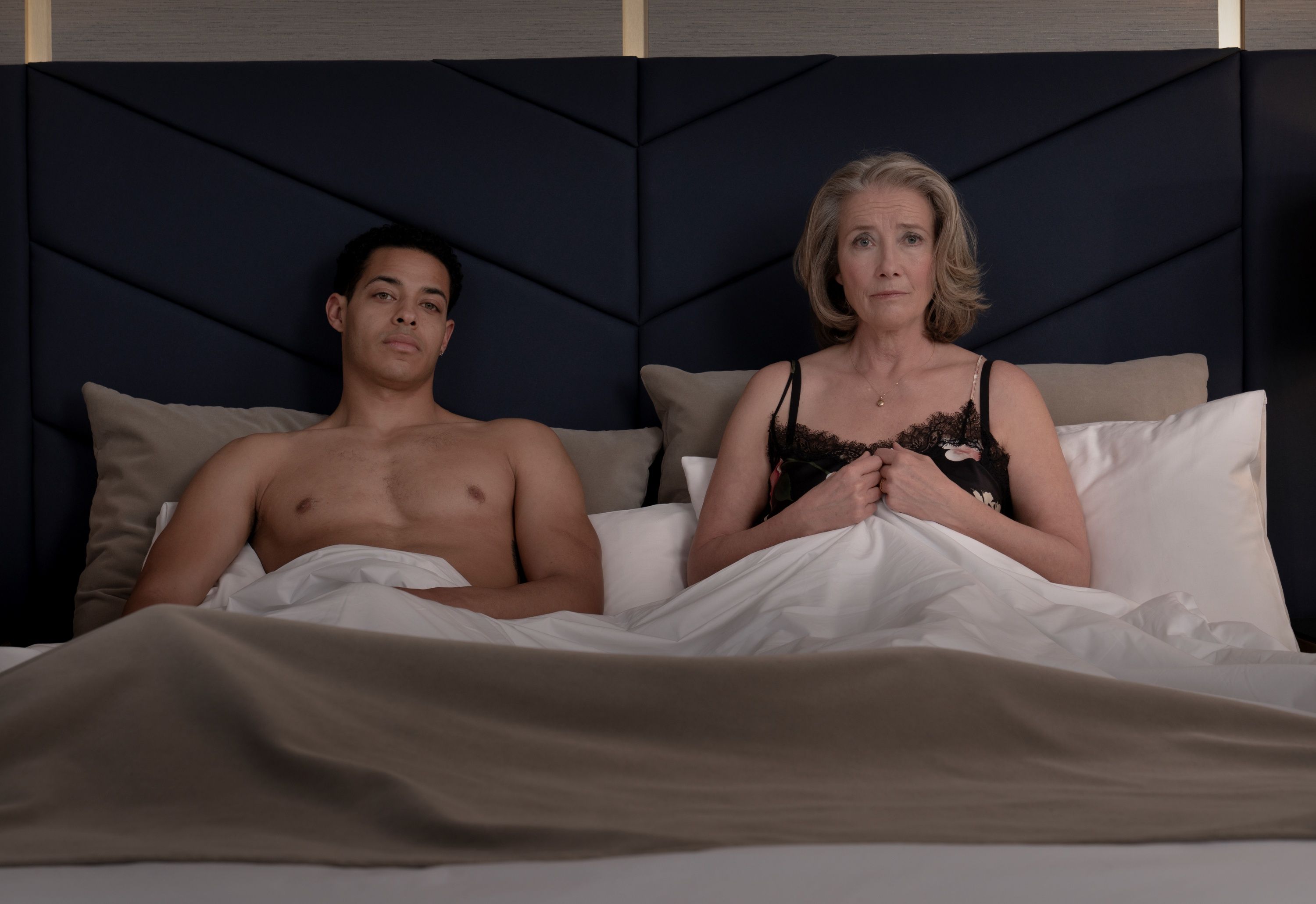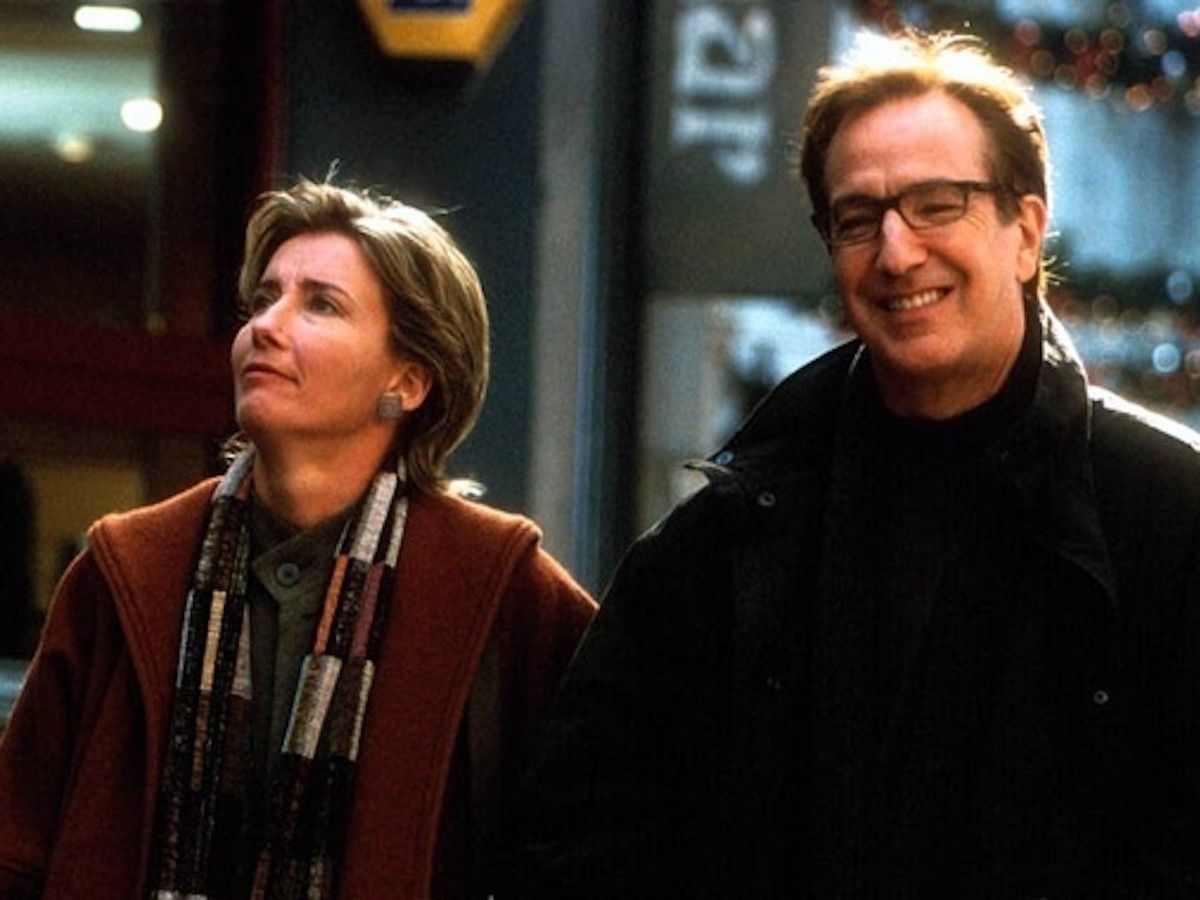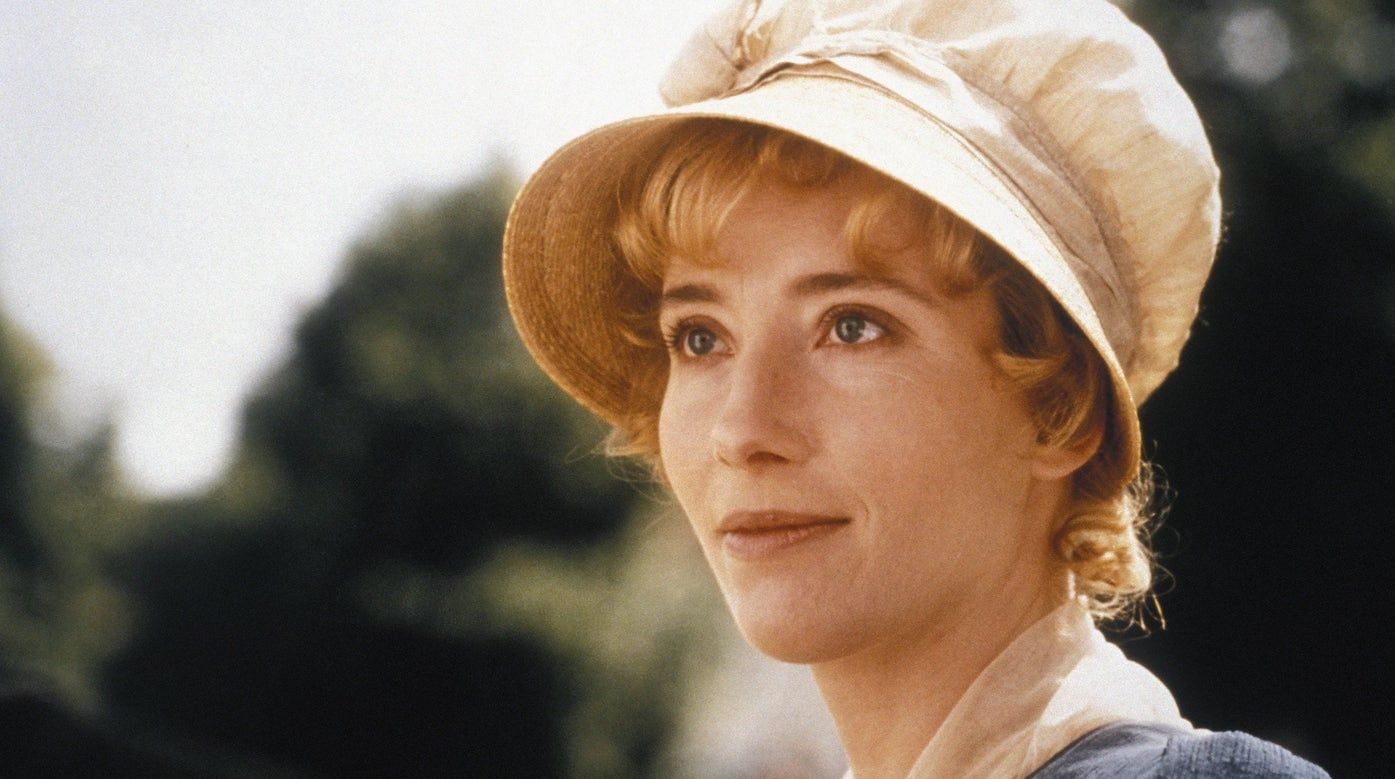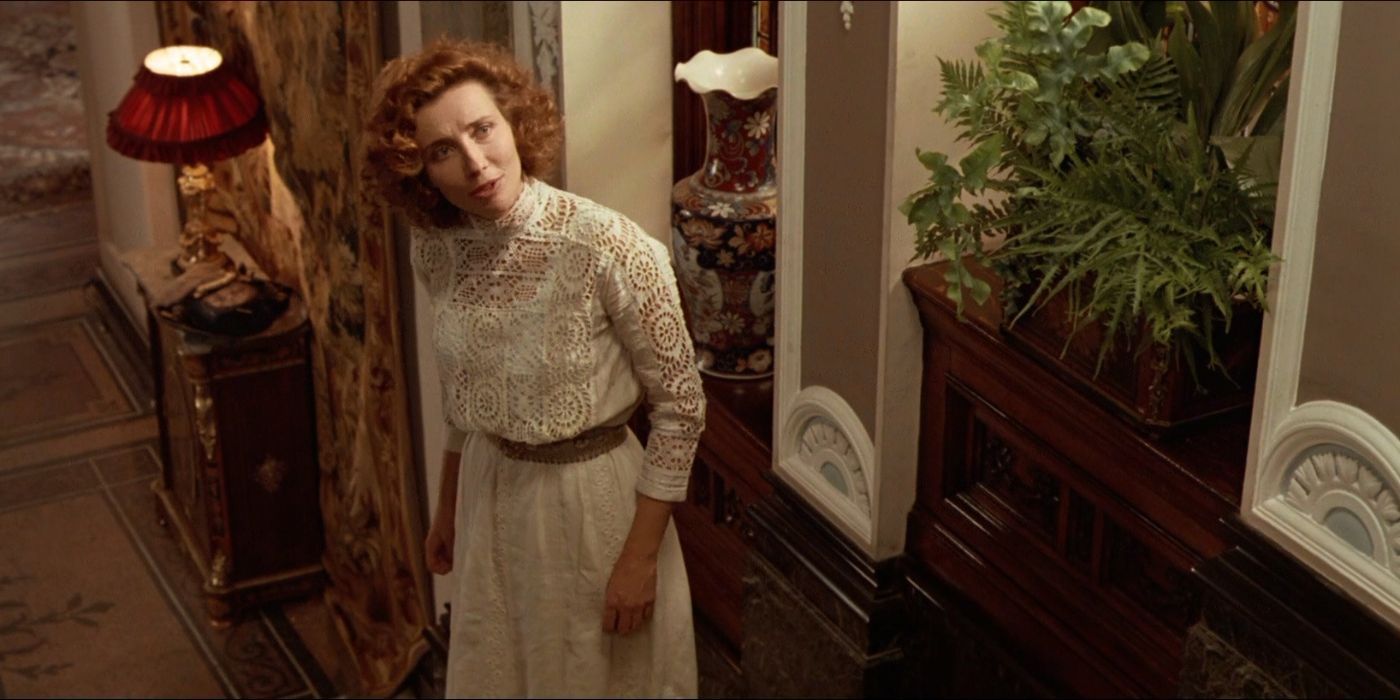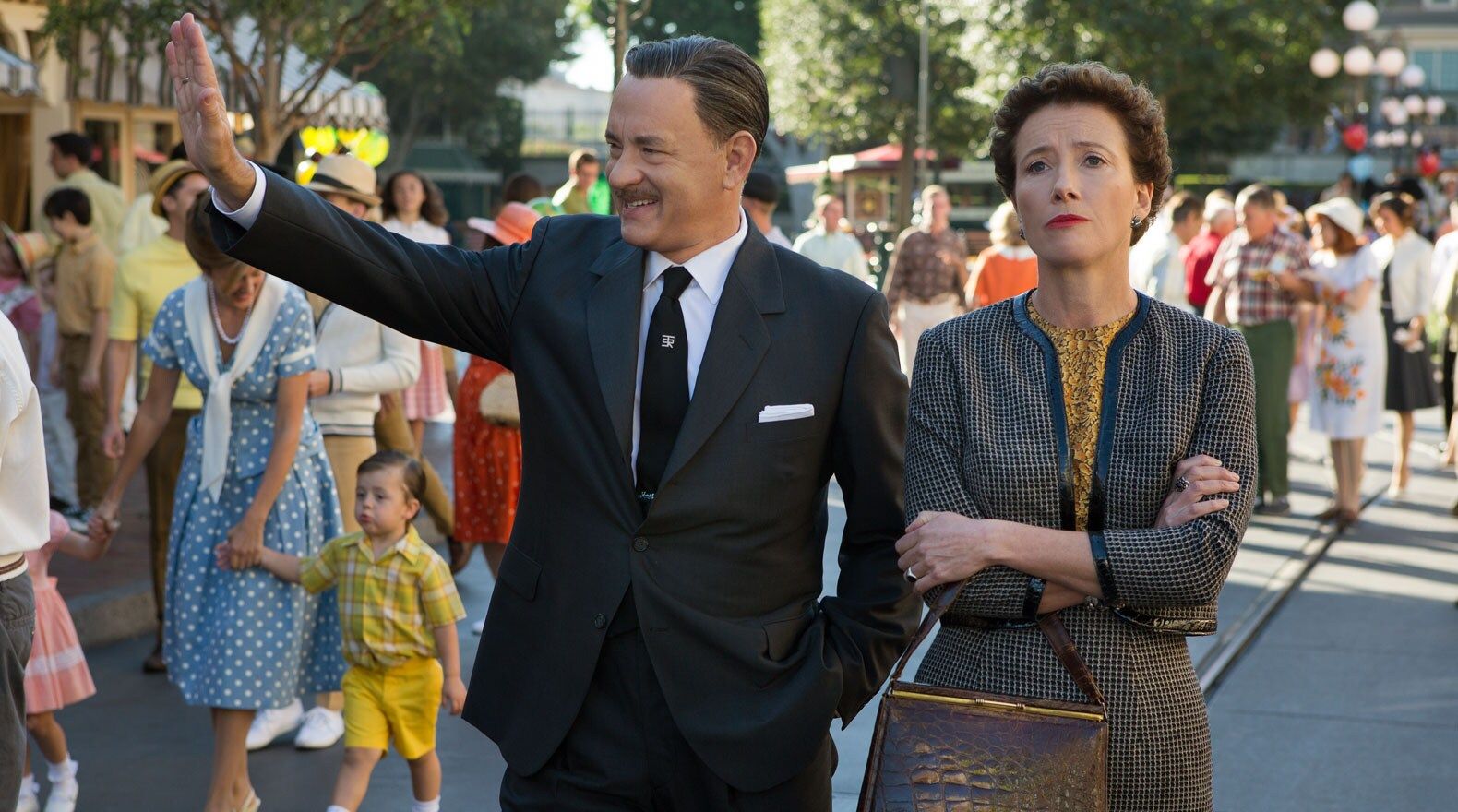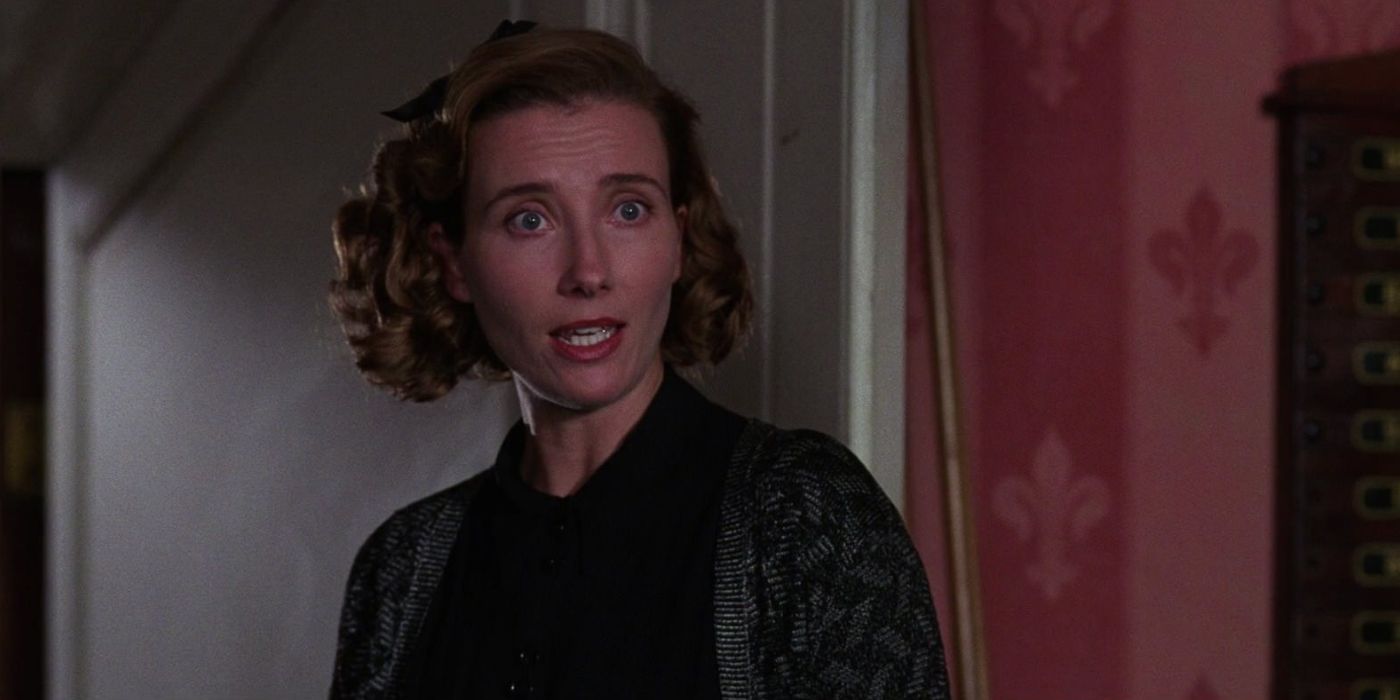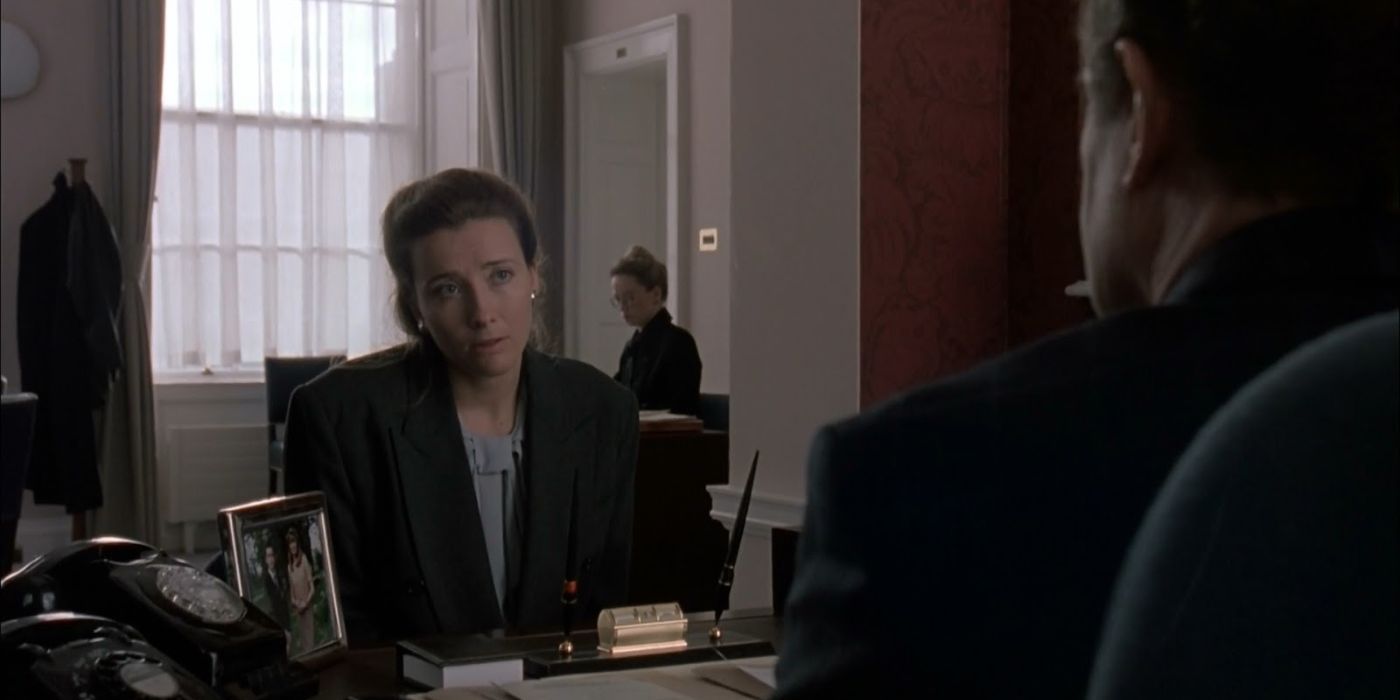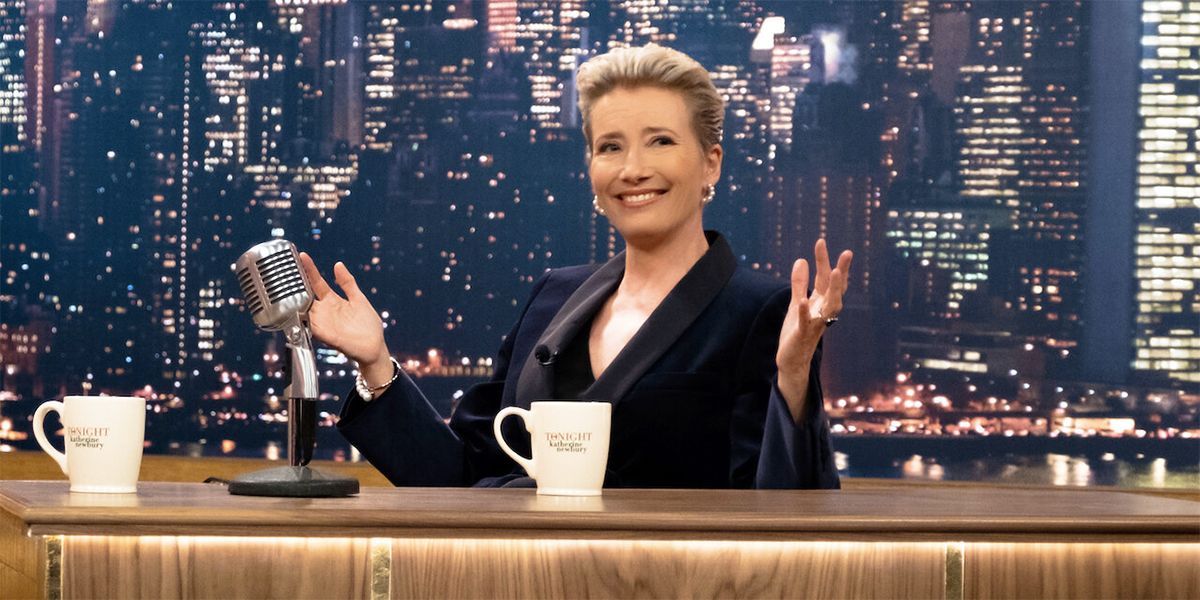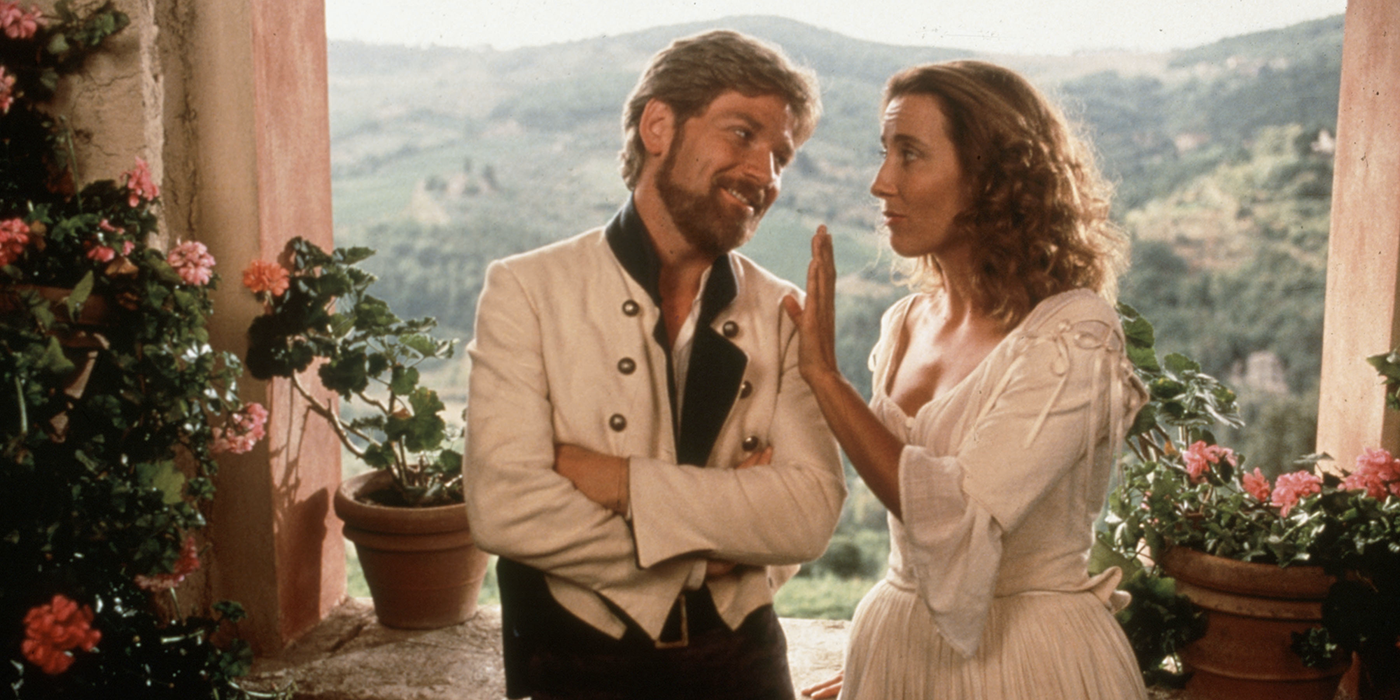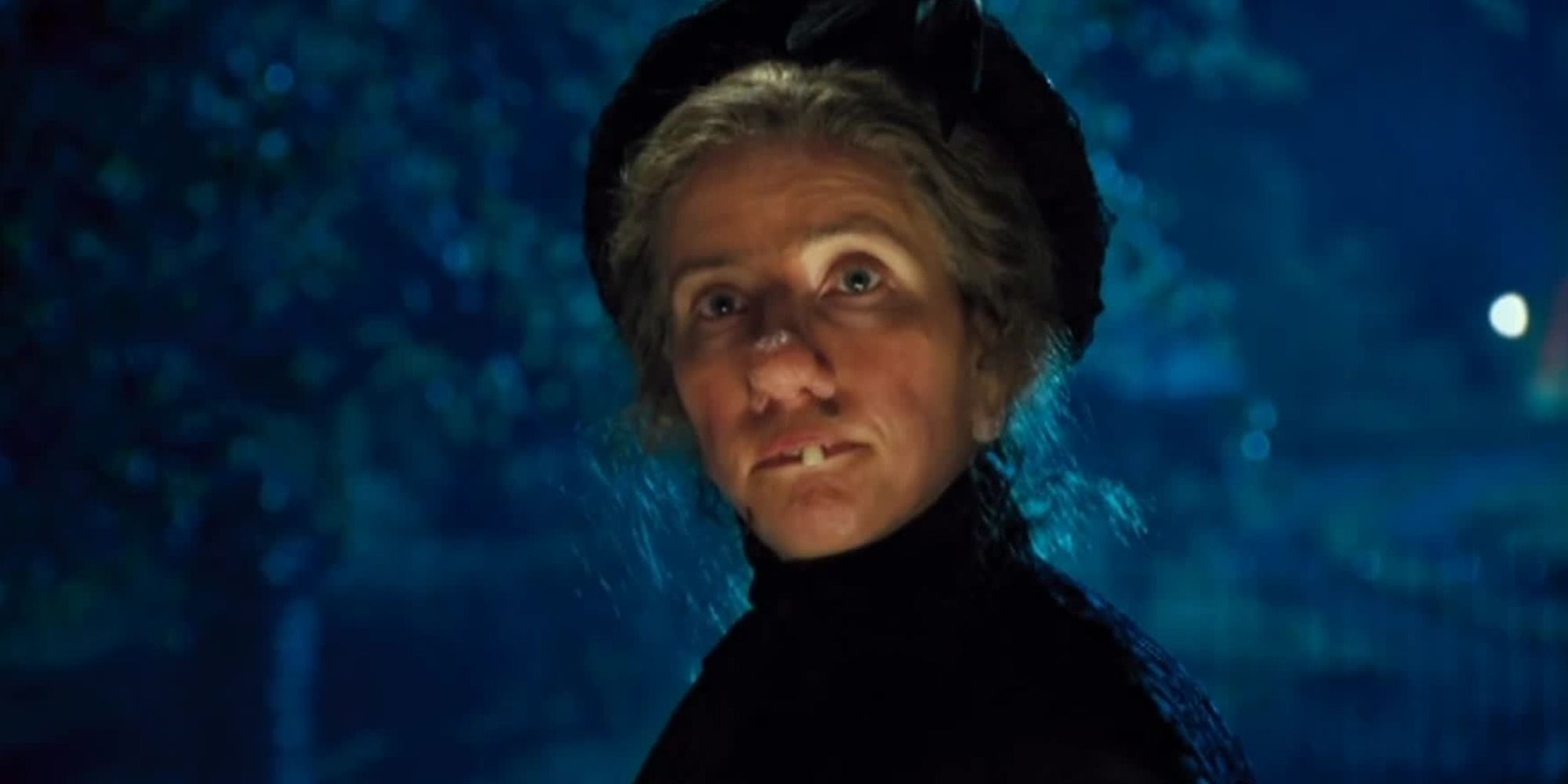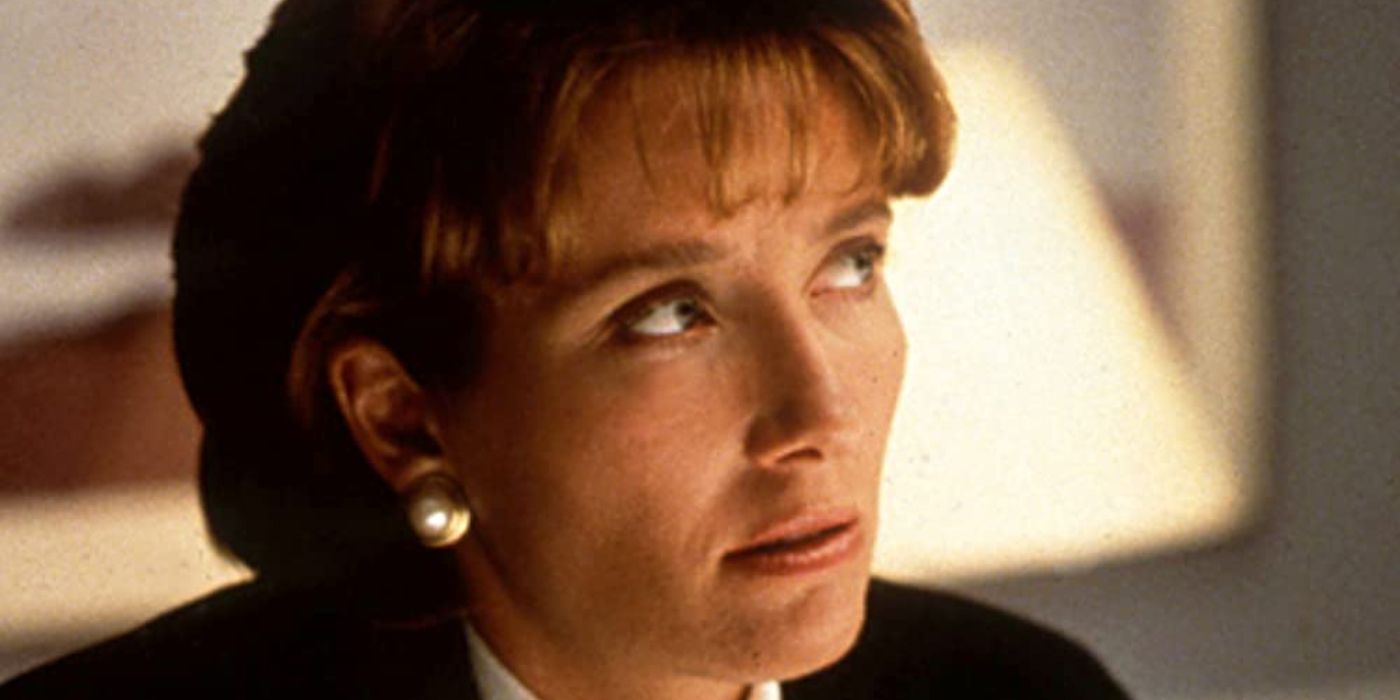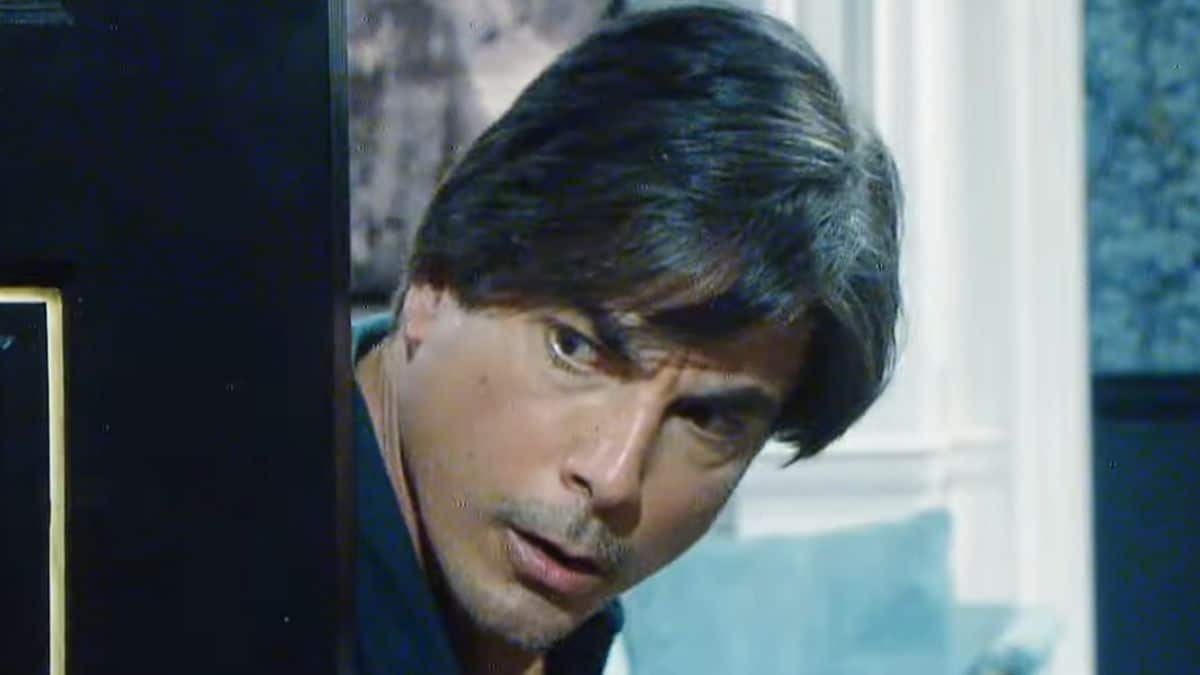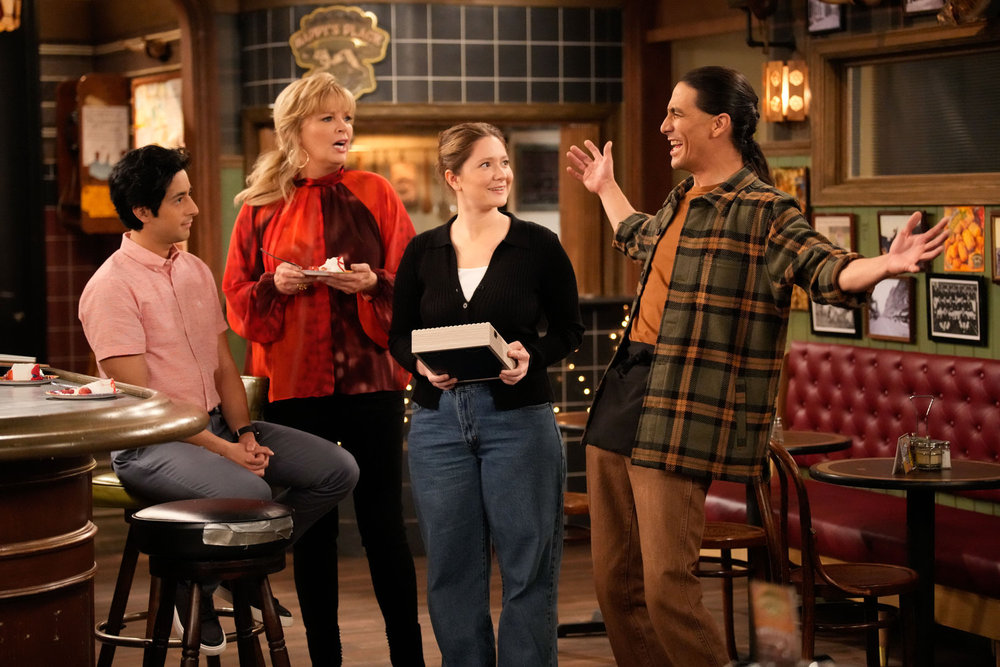In the 1980s, a generation of British actors like Kenneth Branagh and Helena Bonham Carter took over the world with their intelligent and understated acting style. The best of this group, however, is Emma Thompson. No other actress can be as funny and as heartbreaking as Thompson, and she has only gotten better in the past few years. Her performance in the groundbreaking Good Luck to You, Leo Grande is not only charming critics, but it is starting an important conversation on older women’s sexuality. Considering this Oscar-worthy turn as well as her upcoming role as Miss Trunchbull in Roald Dahl’s Matilda the Musical, now is the perfect time to revisit Thompson’s best work.
Could anyone listen to Joni Mitchell the same way after watching Love, Actually? Emma Thompson broke everyone’s heart when she paced teary-eyed listening to “Both Sides Now” in this classic Christmas romantic comedy. Love, Actually follows several different Londoners as they find and lose love around the holidays. Thompson’s character is a mother of two who is devastated to find her husband is having an affair, on Christmas Eve no less. She offers a crushing but refreshing realism that stops the film from turning into a sentimental love fest. It’s a masterclass of acting that will have you rewinding constantly to figure out exactly what she’s feeling.
Not only did Emma Thompson deliver a brilliant performance in this film for her role as Elinor Dashwood, but she won herself an Oscar… for writing! Sense and Sensibility, based on the novel by Jane Austen, follows the two eldest Dashwood sisters, Elinor and Marianne (Kate Winslet) after the death of their father. As women, they can’t inherit any fortune. so they must leave their home and find a husband who is willing to marry someone without any dowry to speak of. As the title suggests, the two women are alike in many ways, except for how they view love as Elinor is more sensible and Marianne is more of a romantic idealist. As the screenwriter, Thompson not only understands her character’s motivation but everyone else’s and therefore makes one of the best Jane Austen adaptations of all time.
Emma Thompson won her first Oscar for this classic of the Merchant-Ivory Golden Age. Howards End, based on the EM Forster novel, centers around two liberal sisters, Margaret (Thompson) and Helen (Helena Bonham Carter) in Edwardian England, as they become involved with a wealthy, conservative industrialist family patriarch, Henry Wilcox (Anthony Hopkins) as well as the working class Leonard Bast (Samuel West). The period costumes may fool you into thinking it’s an outdated or dull story, but it is a biting and stirring story about class politics and sexism. Thompson adds a level of righteous strength that is much needed in this politely brutal film.
While Mary Poppins may be a heartwarming and easy-going film, the making of it was anything but. Saving Mr. Banks tells the story of the fraught battle to turn the successful book series into a Disney film. Thompson plays the author PL Travers as she slowly but surely begins to come around to the idea of a movie adaptation. It would be easy for any actor to make PL Travers a nasty and vile woman without any redeemable characteristics but Thompson is too good for that. She gives depth to someone we may usually dismiss as a bitter spinster and allows us to like her and sympathize with her.
The Remains of the Day (1993)
In yet another collaboration with Anthony Hopkins, Thompson shines as the object of his unrequited affection. Based on the novel by Kazuo Ishiguro, Remains of the Day follows a rule-bound head butler whose world is turned upside down when Miss Kenton (Thompson), the new housekeeper, arrives. Aside from being a tragic story of unrequited love, it’s an apt examination of the English aristocracy’s tolerance, and in some cases, approval of fascist ideals in Post-WWI Europe. Thompson makes a great foil to Hopkins’ character, who is resigned to doing exactly what he is told to do. She offers heart as well as a strong moral duty which turns this dreary period piece into an exciting story.
In the Name of the Father (1993)
In the 1970s, several Northern Irish men and women were wrongfully accused and convicted of being responsible for the Guilford pub bombings. Among them were father, Guiseppe (Pete Postlethwaite), and son, Gerry (Daniel Day-Lewis). In the Name of the Father tells their story and showed the world just how corrupt and racist the English government was towards Irish people. Because of the nature of this injustice, the film feels rather hopeless until Thompson’s character, Gareth Pierce, appears as the lawyer intent on freeing them. True to Thompson’s own political character, Pierce fights against a crooked system and wins through sheer force of will and wit. It may not be the first role you think of when you think of Thompson, but it is by far her most important work.
In Late Night, Emma Thompson really got to flex her comedic muscles. Written by Mindy Kaling, the movie follows a legendary late-night talk show host, Katherine Newbury (Thompson) who is forced to get a female staff writer named Molly (Kaling). Originally meant as a meaningless diversity hire, Molly brings her dated show into the 21st century. The two may be from different backgrounds and generations but they share a common love for making people laugh. Thompson really makes this movie worth watching. She peels away layer after layer until this hardened showbiz woman is someone all of us can relate to.
This Shakespeare play may not get a modern high school makeover like She’s the Man, but it is by no means stuffy. In Kenneth Branagh’s Much Ado About Nothing, the Italian harbor city of Messina is torn upside down by the arrival of noblemen. In this adaptation, Thompson plays Beatrice, a strong-willed woman whose charm and wit intimidate and seduces Benedict (Branagh), the arrogant lifelong bachelor. You can tell that Branagh and Thompson were married at the time this film was made because their chemistry and banter are simply electric. For a fun and intellectually challenging Thompson performance, check out this Shakespearean farce.
Nanny McPhee (2005)
Everyone deserves to have a nanny like this in their life. Nanny McPhee centers around a single father, Mr. Brown (Colin Firth), who has had yet another nanny walk out on his misbehaved family. When he sees a mysterious ad for Nanny McPhee (Thompson), he doesn’t ask questions and suddenly a decrepit-looking woman with magical powers comes to bring his disjointed family together. Even with all the magic and prosthetics, Thompson lets an authentic and touching performance shine through. Praise also has to be given for Thompson’s writing as she creates a story for the entire family to enjoy.
Primary Colors (1998)
This political comedy-drama may be from the 1990s, but it still remains extremely relevant. Based on Bill Clinton’s 1992 presidential campaign, Primary Colors follows a young political idealist, Henry Burton (Adrian Lester), who is tapped to oversee the campaign of the charismatic Governor Jack Stanton (John Travolta) and soon finds that there is more than meets the eye to this charming politician. Thompson plays Stanton’s wife, Susan, whose ambition forces her to turn a blind eye to her husband’s dalliances. As a version of Hillary Clinton, Emma Thompson definitely had big shoes to fill, but she does it gracefully. She doesn’t pander to Clinton or, on the other side, malign her image. Hers is a fair but biting portrayal.
























































![Social Media Spring Cleaning [Infographic] Social Media Spring Cleaning [Infographic]](https://imgproxy.divecdn.com/9e7sW3TubFHM00yvXe5zvvbhAVriJiGqS8xmVFLPC6s/g:ce/rs:fit:770:435/Z3M6Ly9kaXZlc2l0ZS1zdG9yYWdlL2RpdmVpbWFnZS9zb2NpYWxfc3ByaW5nX2NsZWFuaW5nMi5wbmc=.webp)
![5 Ways to Improve Your LinkedIn Marketing Efforts in 2025 [Infographic] 5 Ways to Improve Your LinkedIn Marketing Efforts in 2025 [Infographic]](https://imgproxy.divecdn.com/Hv-m77iIkXSAtB3IEwA3XAuouMwkZApIeDGDnLy5Yhs/g:ce/rs:fit:770:435/Z3M6Ly9kaXZlc2l0ZS1zdG9yYWdlL2RpdmVpbWFnZS9saW5rZWRpbl9zdHJhdGVneV9pbmZvMi5wbmc=.webp)




